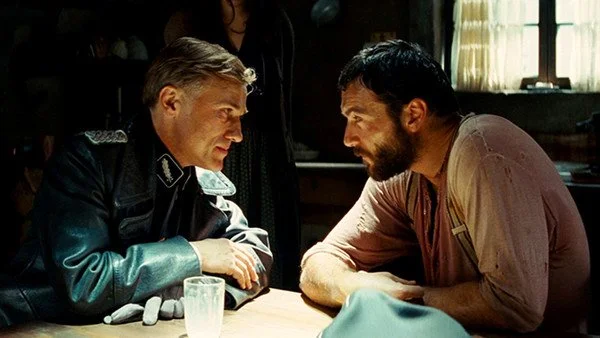#152: Inglourious Basterds
Release Date: August 21st, 2009
Format: Streaming (Paramount+)
Written by: Quentin Tarantino
Directed by: Quentin Tarantino
4 Stars
I think Quentin Tarantino’s legacy will ultimately be his vast enthusiasm as a filmmaker. He’s always been somewhat divisive amongst cinephiles - something I’m sure he enjoys - but you can’t deny that he clearly has a blast writing, producing, and directing his films.
And two of his best films have a markedly enthusiastic energy, even for him. One is his latest film, 2019’s Once Upon a Time in…Hollywood, and the other came ten years earlier, Inglourious Basterds. What do these two films have in common? It’s simple: they allow Tarantino to indulge his deep, deep love and knowledge of cinema.
In the case of Inglourious Basterds, he’s given $70 million to make a hybrid spaghetti western/WWII men-on-a-mission epic.
This is the proverbial kid in a candy shop.
But genre filmmaking is not novel to his work on Basterds (Tarantino has worked with a kaleidoscope of genres throughout his career). What is special about Basterds - and …Hollywood - is that cinema plays an important role in their plots.
With Basterds, there are multiple scenes with characters discussing German cinema, from the expressionist silent films of the 1920s, to mountaineering adventure flicks, to state-funded propaganda. There are also key characters involved in the German film industry, British Lt. Archie Hicox (Michael Fassbender), who is a film scholar and critic who specializes in German film, and a German film star, Bridget Von Hammersmark (Diane Kruger). And, of course, the film’s bloody climax happens where else but a French movie theater.
Maybe that’s most people’s favorite scene, I’m not sure, but for my money I’ll take either the opening scene on the French dairy farm or the scene in the basement of a French bar. Tarantino has so much damn fun stretching the tension to impossible lengths in these scenes, they’re a joy. They’re marvelous.
Say what you will about the man - and plenty has been said, regarding his treatment of race, language, and violence, and his films’ originality - you can’t deny that he makes his movies with his entire soul, his entire adoration of cinema.
